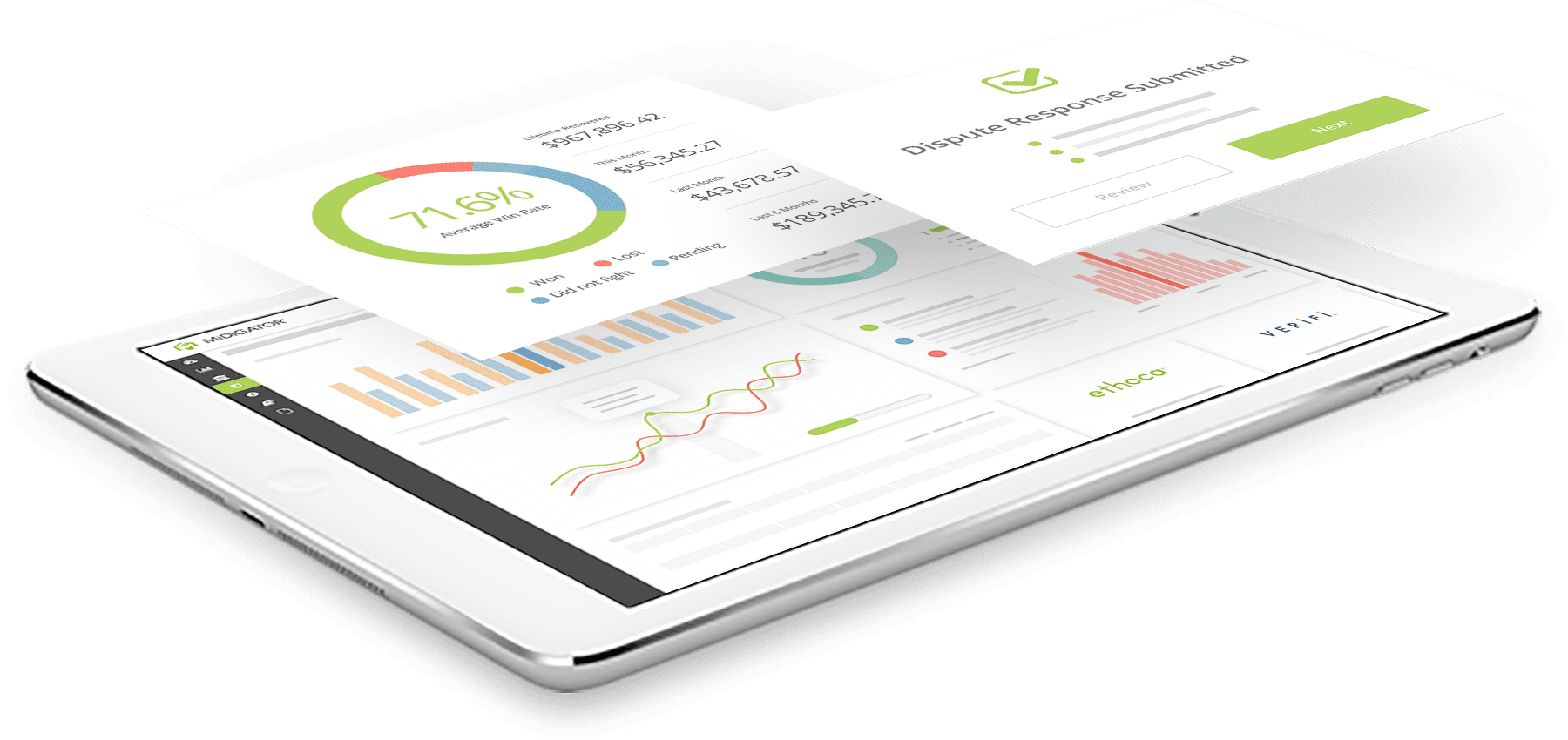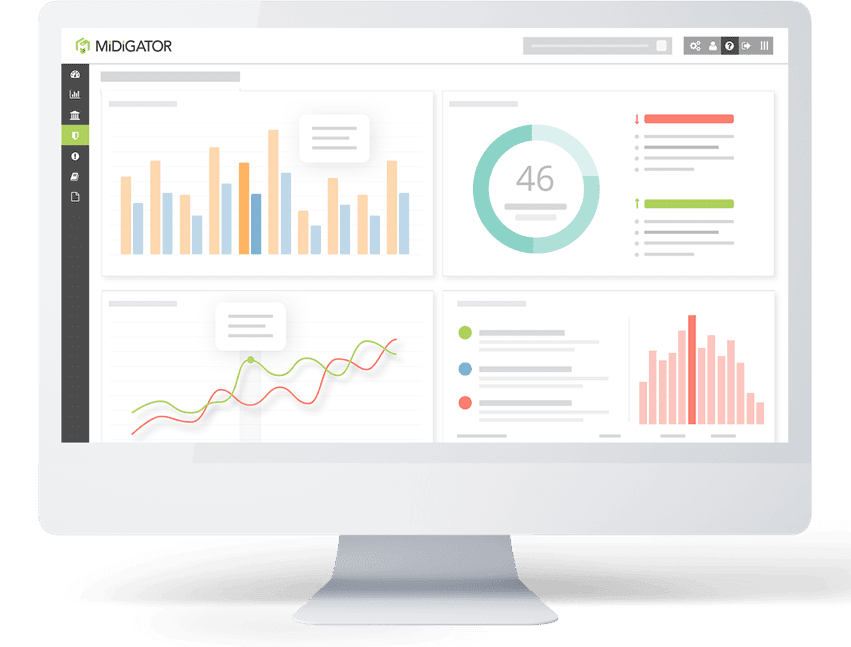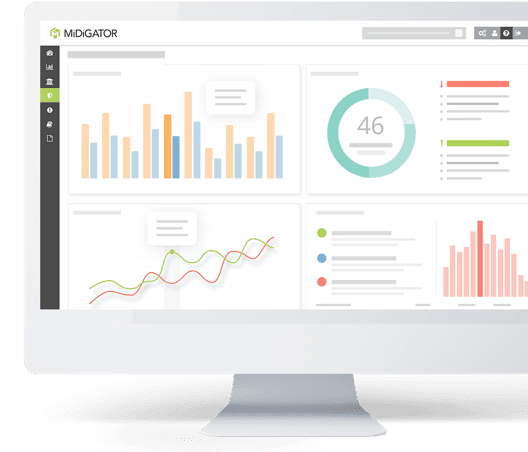A high-risk merchant account is a specific type of payment processing account that is required for certain businesses. All businesses need merchant accounts in order to accept credit and debit card transactions. But not all accounts are the same — some are considered low risk and others are high risk. The high risk classification is applied to businesses that could potentially expose their banks or payment processors to heightened regulatory scrutiny and financial loss.
It’s important to understand which type of merchant account your business needs because the distinction impacts several factors such as processing fees, sales methods, and monthly sales volume.
Use this detailed guide to explore the different payment processing options and what’s at stake with each.
High-Risk vs. Low-Risk Merchant Accounts
When you apply for a merchant account to process transactions from credit and debit cards, your business will be evaluated to determine the probability of becoming a regulatory or financial liability.
If your business could potentially cause the acquiring bank (or processor) to lose money or face increased scrutiny, you could be deemed high risk. If your business seems to be a safe bet, you’ll be labeled a low-risk (or traditional) merchant.
The classification system is extremely subjective, and risk factors vary between processors and from bank to bank.
High Risk Merchants
A high-risk business is one that could negatively impact its processor or bank.
When calculating potential risk, there are several individual variables that can be reviewed. But your bank is also thinking about the bigger picture.
- What is your history? How well have you managed threats in the past?
- Are you prepared for what’s ahead? Do you have processes and tools in place to help you keep risk in check?
- What is the reputation of your industry? Are you guilty by association?
Usually, one factor alone won’t determine if a business is high-risk or not. Multiple factors influence the decision. Most high-risk merchants have at least a few of the following characteristics:
- No prior processing history (new business owners)
- High (about $200,000) or erratic average monthly sales volume
- High (about $500) or erratic average ticket amount
- Low or erratic personal credit score
- Annual contracts
- Delayed deliveries
- Card-not-present sales via online, mail, or telephone orders
- Free-trials or introductory offers
- Recurring sales or subscriptions
- Location in (or plans to sell to) a high risk country
- Placement on the MATCH list
- A history of fraud or bankruptcy
- A history of high returns
- A history of (or an industry with) high numbers of chargebacks
- An industry that is new or unique
- An industry that is highly regulated where there is a greater probability of regulatory oversight
- An industry with limited regulations where consumer complaints are common
- Products or services that inherently have a higher likelihood of customer dissatisfaction or fraud
- Products or services with ambiguous legality or may be illegal in some areas
- Products or services that have a reputational risk that the bank doesn’t want to be associated with
It’s important to note that classification as ‘high risk’ isn’t necessarily a reflection of your personal abilities, your business’s reputation, or the quality of your products or services. Nor are you in bad company — thousands of high-risk merchants have great credit scores, excellent reputations, first-rate customer service, and secure revenue streams. Don’t think of ‘high risk’ as a stigma — and don’t let it interfere with your probability of success!
Low-Risk Merchants
Low-risk merchants are those that pose minimal risk to their bank and process payments with traditional merchant accounts.
It’s difficult to define ‘low-risk’ merchants or outline their characteristics. Basically, a low-risk merchant is any business that isn’t classified as high-risk. The merchant’s products or services, sales methods, location, customers, and industry do not present an increased risk for the processor or bank.
It’s important to note that risk levels can fluctuate. Just because you were initially classified as low-risk is no guarantee that you’ll maintain that distinction forever. If your risk changes, your processing abilities could shift too.
Common High-Risk Industries
Your business will be evaluated on its own individual metrics. But the industry you do business in will also heavily influence your perceived risk and regulatory requirements.
The following types of businesses and industries are commonly in the high-risk category.
Fees for High-Risk Merchants
To compensate for potential financial losses and greater regulatory oversight, processors will typically charge high-risk merchants additional or higher-than-normal fees.
As a high-risk merchant, you can expect to pay more for:
- Setup fees
- Monthly or annual fees
- Processing fees
- Chargeback fees
- Risk monitoring fees
- Early termination fees
You may also be required to have a reserve account (upfront, capped, and rolling reserves are most common), which would impact your bottom line even further.
How to Apply for a High-Risk Merchant Account
Have you been told you’ll need high-risk merchant services? Here’s how to prepare for the application process and increase your odds of acceptance.
Not all processors work with high-risk merchants, and the ones that do usually only accept a handful of industries. Look for processors (and payment gateways) that do business with merchants in your industry, and make a list of available options.
Just because certain processors are willing to work with you doesn’t automatically mean that you’ll want to work with them.
It’s often difficult to obtain a high-risk bank accounts, and some merchants become desperate. Unscrupulous individuals have recognized that these merchants are in dire straits and take advantage of the situation. They offer accounts that prey on merchants’ vulnerability with excessive fees, harsh penalties, and restrictive contracts.
Be on the lookout for these predators. Check the Better Business Bureau and online reviews for each prospective processor on your list. Look for comments on social media. Read the fine print on the terms and conditions page of the website.
A reputable processor will have the following characteristics:
- Easily-accessible and responsive customer support
- Customizable processing capabilities that suit your needs
- Transparent and reasonable pricing
- Accessible fraud management tools
- Experienced professionals
When you apply for a high risk merchant account, you’ll also need to share supporting documents. Processors will typically want to learn more about your past processing history and personal credibility.
Each processor will have different requirements. Here are some of the items you may be asked to provide.
Business Identification and Verification
- Your business’s articles of incorporation (if you don’t have a copy, check with your Secretary of State’s office)
- A voided check for the bank account where you want your merchant account funds to be deposited (if you don’t have a check, ask your bank for a letter that includes your business name, address, account number, routing number, and manager’s signature)
- IRS form SS-4 that verifies your federal employer identification number (EIN)
- Your business’s organization structure chart that includes all shareholders
- A copy of your passport
- Your business’s license number and name of the organization that issued the license (if industry regulations require that your business have a license)
Financial History
- Your most recently filed tax return
- Balance sheets with profit and loss statements
- Processing statements for the previous three to six months (total volume, number of transactions, chargeback counts and ratios)
- Bank statements from for the previous three to six months
The prospective processor may also check your website, so make sure it is compliant with requirements. All these items should be visible and easily accessible on a fully-functioning website:
- Terms and conditions
- A privacy policy
- A refund policy
- A recurring payments policy (if you sell goods or services with a subscription)
- Clear and transparent pricing
- An ‘imprint’ that includes your business’s name, physical address, telephone number, and email address
- Logos for accepted card brands clearly displayed on the payment page
Your prospective processors will probably check your online reputation, just like you reviewed them! Before anyone starts digging into your past, make sure you know what’s out there.
Do an online search for both your name and your business’s name. Address what you can, and then be prepared to honestly explain any disparaging comments.
When you think you are ready, go ahead and initiate the application process.
Once you have the application, review it critically. Read the fine print. Look for potential scams. Make sure you agree with and can abide by the terms.
As you complete the application, be honest. Don’t try to hide or omit any not-flattering details. Instead, come prepared with a plan to avoid similar challenges and setbacks in the future.
If you successfully complete the underwriting process and your application is approved, you’ll be given a merchant agreement to review. It will outline the full terms and conditions that are specific to your account.
Check the following details. Make sure the terms are reasonable and you’ll be able to abide by them.
- Length of the contract and if there is an early termination fee
- Monthly sales volume limits
- Transaction amount limits
- Any restrictions on locations, sales methods, or products
- Processing fees
- Chargeback fees
- Reserve requirements
If your application is denied, see if you can get any feedback on the characteristics that disqualified you. Hopefully, there are factors that you can change (like dropping certain items from your inventory) or improve (like your credit score).
If you can improve your odds or think you’ll have better luck with a different processor, give the application process another try!
High-Risk Merchant FAQs
Obtaining and maintaining high-risk merchant accounts can be challenging. These are some of the most common questions we hear from merchants as they try to optimize their payment processing capabilities.
Don’t see your question listed here? Email us at contact@midigator.com, and we’ll help you any way we can!
Help me see the silver lining. Are there any benefits of high-risk merchant accounts?
Fortunately, there are several benefits of high-risk merchant accounts. It’s just that merchants usually overlook them or don’t acknowledge that they are actually benefits!
For example, if you have a high-risk merchant account, you can do things that you probably couldn’t do with traditional processing.
- Have an online store
- Process recurring transactions and subscriptions
- Sell internationally
- Offer big-ticket merchandise and services
Is it possible for my business to have both low-risk and high-risk accounts at the same time?
Yes, it’s absolutely possible to have multiple account types.
For example, you might use a traditional merchant account to process transactions made in your brick-and-mortar store and a high-risk account for your online sales.
Different accounts are used to meet different processing objectives. And each processor calculates risk differently. What one processor considers a threat might be completely manageable to another.
Will I ever be reclassified as a low-risk merchant?
You might be!
If your situation has changed — for example, your chargebacks have decreased or you’ve changed your inventory — ask your processor to reevaluate the situation.
My processor is asking for a chargeback reduction plan. What should I do?
First of all, take the request seriously. If your processor is concerned about your chargeback situation, your payment processing privileges are in jeopardy.
Second, check out this blog article. We have a step-by-step guide and a template to help you create your own plan.
If I don’t reduce my chargeback ratio, I’m going to lose my merchant account. What tools can help me reduce risk quickly?
This article lists eight tools that, when combined, will give you the most complete chargeback protection possible.
However, if you need quick and easy results, we suggest you start with chargeback prevention alerts. Sign up for a demo of Midigator® today. We can get you up and running in as little as 24 hours, and merchants typically see a 30-40% reduction in their chargeback counts.
Midigator Can Help High-Risk Merchants
If a processor has classified you as a high-risk merchant, contact Midigator right away.
As your business grows, you will need the ability to process additional transaction volume. That means merchant accounts are incredibly valuable business assets — you can’t afford to lose them or be denied additional processing.
Don’t let chargebacks damage your reputation or threaten your payment processing capabilities. Take action now, no matter your current situation.
- If you have a new business and chargebacks aren’t an issue yet, be proactive. We’ll help you get a strategy in place so disputes won’t become a liability.
- If you have an established business and your chargeback situation is becoming unmanageable, we’ll help you quickly and easily get disputes under control.
Don’t delay. Let Midigator remove the complexity of payment disputes so you can focus on growing your business.













